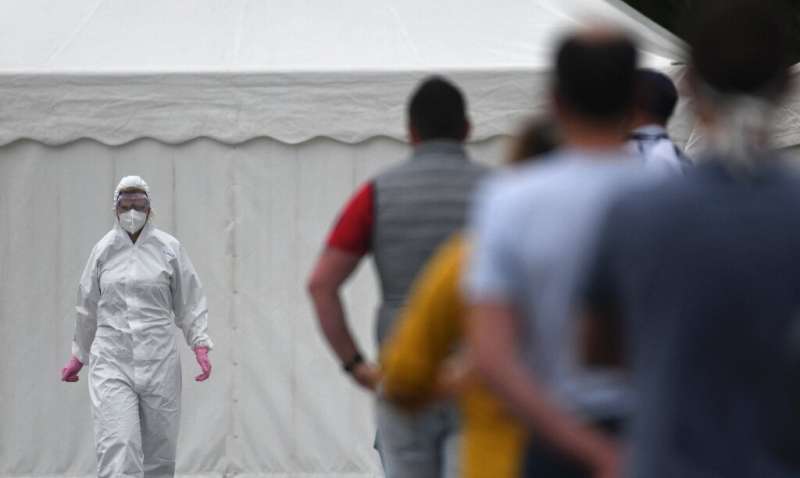Abattoirs could be coronavirus factories, experts warn

As coronavirus clusters in slaughterhouses around the world continue to multiply, health experts are calling for better virus monitoring to prevent further infection.
How many cases?
Slaughterhouses are shutting down across the United States after thousands of cases were confirmed.
Four managers responsible for ensuring social distancing barriers have died.
The Centers for Disease Control (CDC) estimated that at least 5,000 meat and poultry workers have contracted the virus in the US alone.
In Germany, more than 90 cases were discovered in a Saxony slaughterhouse in recent days—the latest in a series of flare ups since April.
Cases are growing in France, too, where more than 100 confirmed infections were found in two slaughterhouses in the western part of the country.
Other notable hotspots have emerged in Australia, Spain and Brazil.
"The high number of outbreaks in meat processing plants around the world deserves investigation," Raina MacIntyre, head of the public health school at the University of New South Wales in Sydney, told AFP.
Why so many infections?
Experts say the overcrowded conditions in many abattoirs makes it hard for workers to practice social distancing.
This in turn makes it harder to avoid sick colleagues and increases the chances of transmission.
"Bringing large numbers of people together from across a community, having them working on long shifts with plenty of opportunities for transmission, is likely to result in heightened risk," said Archie Clements, an epidemiology professor at Curtin University in Australia.
Paul Auffray, vice president of France's number one association of pig farmers, agreed.
"In slaughterhouses, as in any job environment, there will obviously be overcrowding," he said.
"Even with social distancing, there is a heightened risk".
Yet overcrowding alone doesn't explain why meat factory workers are more likely to contract the virus.
Slaughterhouses are not "unique" among assembly line employment in terms of overcrowding, explained Antoine Flahault, director of global health at the Institute of Geneva, in Switzerland.
MacIntyre added that the "gruelling physical requirements of the work" could also have an impact on factory workers.
"The jobs are quite stressful, and the employees often come from backgrounds with high rates of smoking and other lifestyle factors that predispose to respiratory disease, so it is possible that this group is more susceptible than others", said Clements, who himself previously worked in a slaughterhouse.
Cold and ventilation?
One hypothesis is that the cold and humid conditions necessary for meatpacking, as well as heavy ventilation, could contribute to the propagation of the virus.
"Very rapidly performed physical tasks in a production line, and high generation of aerosols in cold, enclosed conditions, (could) magnify transmission risk if one person is infected," MacIntyre suggested.
But Mathieu Pecqueur, the director of a French labour union Culture Viande, disagreed.
"We have not seen any significant results on the fact that refrigeration or air conditioning could have an effect on contamination," he said.
Is it in the meat?
A 2015 study in the scientific journal Infection Ecology & Epidemiology found that a significant proportion of camels brought to slaughterhouses in Doha, Qatar, were carriers of MERS—a COVID-19-like coronavirus.
According to the researchers, the slaughterhouses were "drivers" for the outbreak of MERS in the Middle East and "high-risk area(s) for human exposure."
But there is so far no evidence that meat can be infected with COVID-19.
"There's no proof of contamination from meat," Laurent Habert, director of the French health agency ARS in the Centre-Val de Loire region south of Paris, said in an interview on the news channel BFMTV.
"It's more likely happening between factory workers".
Anses, a French public health watchdog group, concurred.
In two reports, the agency found that "there is no scientific proof that animals—livestock and pets—play a role in the diffusion of the virus."
What is certain is that cooking meat will kill the virus if there is any, they noted.
© 2020 AFP


















